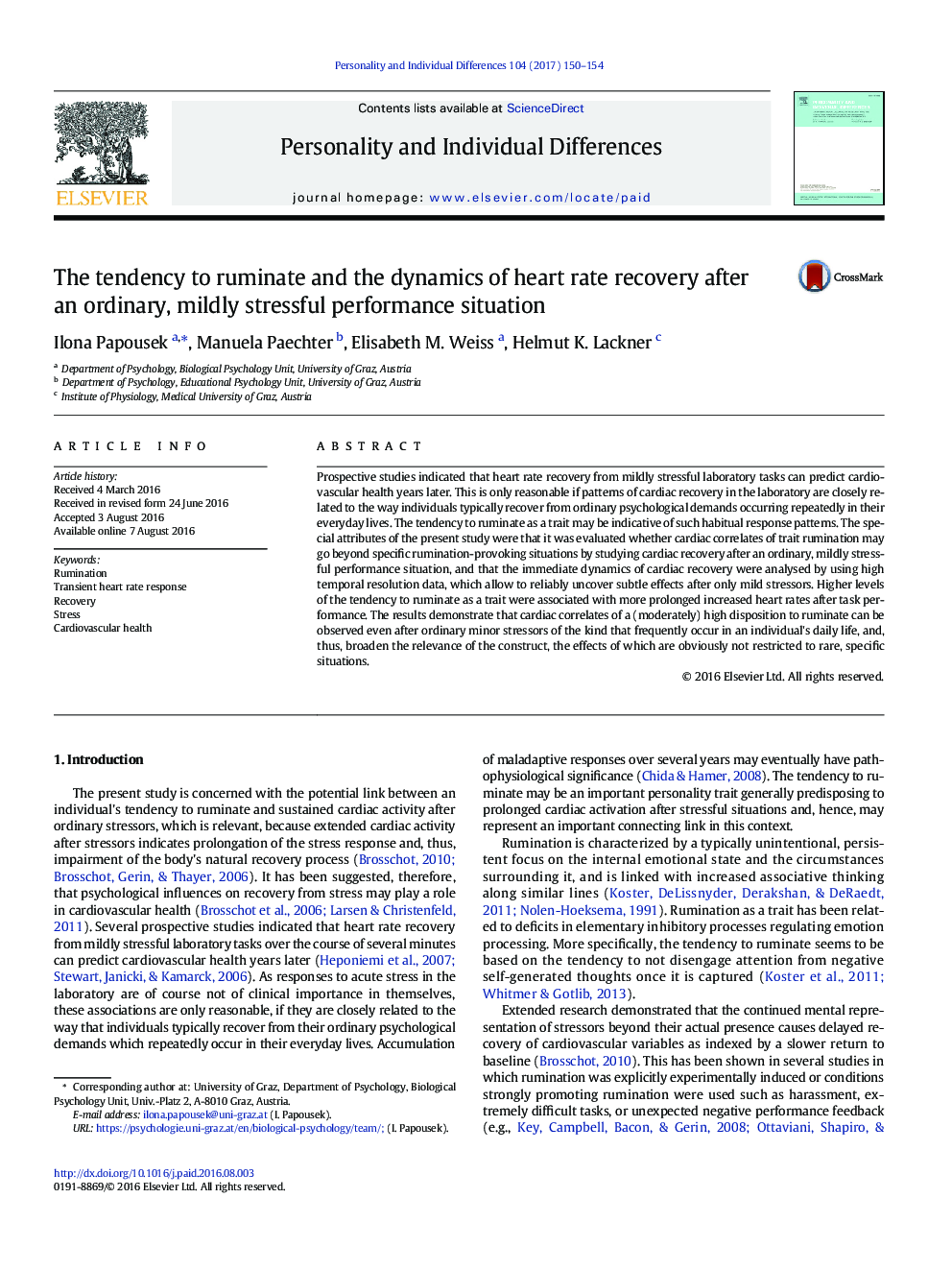| Article ID | Journal | Published Year | Pages | File Type |
|---|---|---|---|---|
| 7249455 | Personality and Individual Differences | 2017 | 5 Pages |
Abstract
Prospective studies indicated that heart rate recovery from mildly stressful laboratory tasks can predict cardiovascular health years later. This is only reasonable if patterns of cardiac recovery in the laboratory are closely related to the way individuals typically recover from ordinary psychological demands occurring repeatedly in their everyday lives. The tendency to ruminate as a trait may be indicative of such habitual response patterns. The special attributes of the present study were that it was evaluated whether cardiac correlates of trait rumination may go beyond specific rumination-provoking situations by studying cardiac recovery after an ordinary, mildly stressful performance situation, and that the immediate dynamics of cardiac recovery were analysed by using high temporal resolution data, which allow to reliably uncover subtle effects after only mild stressors. Higher levels of the tendency to ruminate as a trait were associated with more prolonged increased heart rates after task performance. The results demonstrate that cardiac correlates of a (moderately) high disposition to ruminate can be observed even after ordinary minor stressors of the kind that frequently occur in an individual's daily life, and, thus, broaden the relevance of the construct, the effects of which are obviously not restricted to rare, specific situations.
Related Topics
Life Sciences
Neuroscience
Behavioral Neuroscience
Authors
Ilona Papousek, Manuela Paechter, Elisabeth M. Weiss, Helmut K. Lackner,
